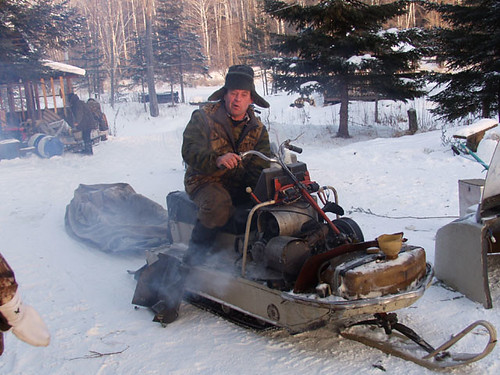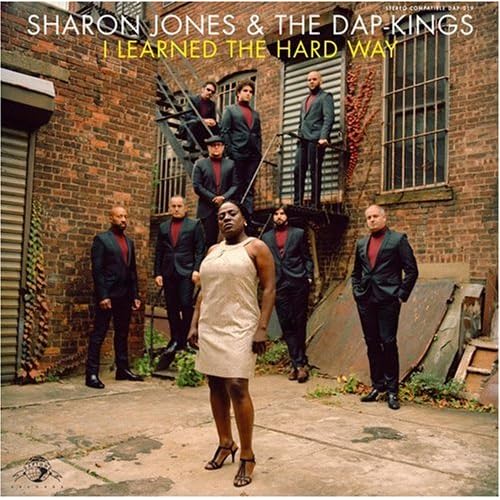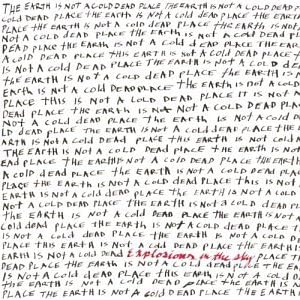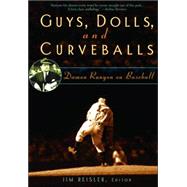Friday, February 27, 2004
So......Whatcha Doin'?
Which comes first, curiousity or empathy? Does
or
 elicit questions first and then emotions or is it the reverse?
elicit questions first and then emotions or is it the reverse?
Does sympathy muddy up the roiled waters of your emotional dilemna? Are you Jack Nicholson in "Prizzi's Honor, wondering about Katherine Turner ("Should I ice her? Should I marry her? Which of deeze?") thinking, "Do I empathize? Do I sympathize? Which of deeze?".
"Prizzi's Honor, wondering about Katherine Turner ("Should I ice her? Should I marry her? Which of deeze?") thinking, "Do I empathize? Do I sympathize? Which of deeze?".
I could get cold, rational, & Germanic and put this into an Axis of Emotive Directions, but why involve a specific ethnic group of people who like to diagram feelings here? I'm just throwing cooked spaghetti on the wall to see if it's done.
Axis of Emotive Directions, but why involve a specific ethnic group of people who like to diagram feelings here? I'm just throwing cooked spaghetti on the wall to see if it's done.
I prefer al dente.
Some did stick.
I apologize for the photos of the kids, as teasers of your empathy/sympathy. Pictures of children, especially the wide-eyed ones are like minor chord songs. You're emoting & crying and you don't know why...and if the pictues or the songs (or even better.. the pictures AND the songs) are followed by a Call Us RIGHT NOW phone number, you're probably also shelling out some cash. I really shouldn't be showing these pics. I'll try to stop. I just need your attention here, not your renumeration.
the wide-eyed ones are like minor chord songs. You're emoting & crying and you don't know why...and if the pictues or the songs (or even better.. the pictures AND the songs) are followed by a Call Us RIGHT NOW phone number, you're probably also shelling out some cash. I really shouldn't be showing these pics. I'll try to stop. I just need your attention here, not your renumeration.
This wordspout is about the working life. In the States, more so than in Europe, one of the first topics of conversation tends to be, "What do you do?" Work defines your life here. You are first, a salesman, a welder, a lawyer, a professor. Being a mom, dad, college grad comes second. Well, that's your other job.
Since WORK was going to be the life for me, I had questions as to what kind of life this was going to be. Conversations with folks already deep into their professions and their jobs were confusing, at first. So, off to do some reading. Curiosity before Empathy was my path toward work. One author's books that I come back to repeatedly are those of Studs Terkel. His 1997 book, "Working" was my first introduction to his writings. Here, in short (3-10 page) stories, he interviewed various folks about their jobs, their professions, their work. Folks, like A Farmer are portrayed such that your empathy sensors are on high alert. I came away from his book with both a better understanding of jobs & professions I had no clue about, along with respect for those holding jobs I stupidly considered beneath me. The effects of this book resounded during my college years when summer jobs consisted of whatever good paying job was available at the time. Paying one's way through college takes the sheen off of one's wing-tipped shoes quickly. Working in an auto assembly plant, concrete boat construction (yes...concrete weighs less than comparable amount of steel...concrete boats do float), cosmetics manufacturing (where finely ground up aluminum filings(as in the same metal that is used for storm windows) was combined with various fats to produce....anti-perspirant deoderants..which is why I stay away from the anti-perspirant types of deoderant), and general construction confirmed all of what Mr. Terkel talked about. Until I knew what these jobs were like, I shouldn't be ragging on anyone doing these jobs.
From an interview with The Stud, this excerpt.
"Back at our interview table, it is Jesus who makes the first appearance. Studs says, with recorder in hand, he would choose to record that moment in history, 1995 years ago on Good Friday, Christ's execution day. For ten minutes Studs lives out that moment, trying to shed light on those involved: There's Jesus Christ, "a guy preaching something subversive," his followers, "mild and gentle," a young Roman soldier, "he's drafted from the countryside, scared stiff," and the judge, "just a hack ordinary judge." Terkel continues the drama, now fully transported to this place and time. "This judge, his name is Pilate. He's washing his hands [addressing his wife], 'I got this case, an agitator...some people like him, a few nuts like you.' She says, 'Leave that guy alone, he's a good guy.' And he says, 'Would you stop nagging me, for Christ's sake!'"
Terkel laughs, "That is the only time the phrase was used right."
 Terkel enjoys the joke, but his story has a purpose. He likes to illustrate his point with a poem by Bertold Brecht: ."When the Chinese Wall was built, where'd the masons go for lunch? When Caesar conquered Gaul, was there not even a cook in the army?
Terkel enjoys the joke, but his story has a purpose. He likes to illustrate his point with a poem by Bertold Brecht: ."When the Chinese Wall was built, where'd the masons go for lunch? When Caesar conquered Gaul, was there not even a cook in the army?
Attention: Remember that dream job or profession that you thought would be the thing for you? Summers off. Constant stimulating conversation with interesting open-minded people. Presence of youthful admirers of your every word. Yes, the college professor seemed to be the life. Well, for those undergrad dreamers already preparing their tenureship speeches and thinking of all of that "Free to be ME' time, here's an interesting piece by
 Edward L. Ayers. Dr. Ayers, the Hugh P. Kelly Professor of History, had been named "Teacher of the Year" at the University of Virginia in an annual student survey focusing on faculty members who teach introductory-level undergraduate courses. This is his acceptance speech for that award, from 1993.
Edward L. Ayers. Dr. Ayers, the Hugh P. Kelly Professor of History, had been named "Teacher of the Year" at the University of Virginia in an annual student survey focusing on faculty members who teach introductory-level undergraduate courses. This is his acceptance speech for that award, from 1993.
What Does a Professor do All Day, Anyway?
I empathize completely, with a touch of jealousy, as well. But that emotion is for another spouting, n'est-ce pas?
Which comes first, curiousity or empathy? Does

or
 elicit questions first and then emotions or is it the reverse?
elicit questions first and then emotions or is it the reverse?
Does sympathy muddy up the roiled waters of your emotional dilemna? Are you Jack Nicholson in
 "Prizzi's Honor, wondering about Katherine Turner ("Should I ice her? Should I marry her? Which of deeze?") thinking, "Do I empathize? Do I sympathize? Which of deeze?".
"Prizzi's Honor, wondering about Katherine Turner ("Should I ice her? Should I marry her? Which of deeze?") thinking, "Do I empathize? Do I sympathize? Which of deeze?".
I could get cold, rational, & Germanic and put this into an
 Axis of Emotive Directions, but why involve a specific ethnic group of people who like to diagram feelings here? I'm just throwing cooked spaghetti on the wall to see if it's done.
Axis of Emotive Directions, but why involve a specific ethnic group of people who like to diagram feelings here? I'm just throwing cooked spaghetti on the wall to see if it's done.
I prefer al dente.
Some did stick.
I apologize for the photos of the kids, as teasers of your empathy/sympathy. Pictures of children, especially
 the wide-eyed ones are like minor chord songs. You're emoting & crying and you don't know why...and if the pictues or the songs (or even better.. the pictures AND the songs) are followed by a Call Us RIGHT NOW phone number, you're probably also shelling out some cash. I really shouldn't be showing these pics. I'll try to stop. I just need your attention here, not your renumeration.
the wide-eyed ones are like minor chord songs. You're emoting & crying and you don't know why...and if the pictues or the songs (or even better.. the pictures AND the songs) are followed by a Call Us RIGHT NOW phone number, you're probably also shelling out some cash. I really shouldn't be showing these pics. I'll try to stop. I just need your attention here, not your renumeration.
This wordspout is about the working life. In the States, more so than in Europe, one of the first topics of conversation tends to be, "What do you do?" Work defines your life here. You are first, a salesman, a welder, a lawyer, a professor. Being a mom, dad, college grad comes second. Well, that's your other job.
Since WORK was going to be the life for me, I had questions as to what kind of life this was going to be. Conversations with folks already deep into their professions and their jobs were confusing, at first. So, off to do some reading. Curiosity before Empathy was my path toward work. One author's books that I come back to repeatedly are those of Studs Terkel. His 1997 book, "Working" was my first introduction to his writings. Here, in short (3-10 page) stories, he interviewed various folks about their jobs, their professions, their work. Folks, like A Farmer are portrayed such that your empathy sensors are on high alert. I came away from his book with both a better understanding of jobs & professions I had no clue about, along with respect for those holding jobs I stupidly considered beneath me. The effects of this book resounded during my college years when summer jobs consisted of whatever good paying job was available at the time. Paying one's way through college takes the sheen off of one's wing-tipped shoes quickly. Working in an auto assembly plant, concrete boat construction (yes...concrete weighs less than comparable amount of steel...concrete boats do float), cosmetics manufacturing (where finely ground up aluminum filings(as in the same metal that is used for storm windows) was combined with various fats to produce....anti-perspirant deoderants..which is why I stay away from the anti-perspirant types of deoderant), and general construction confirmed all of what Mr. Terkel talked about. Until I knew what these jobs were like, I shouldn't be ragging on anyone doing these jobs.
From an interview with The Stud, this excerpt.
"Back at our interview table, it is Jesus who makes the first appearance. Studs says, with recorder in hand, he would choose to record that moment in history, 1995 years ago on Good Friday, Christ's execution day. For ten minutes Studs lives out that moment, trying to shed light on those involved: There's Jesus Christ, "a guy preaching something subversive," his followers, "mild and gentle," a young Roman soldier, "he's drafted from the countryside, scared stiff," and the judge, "just a hack ordinary judge." Terkel continues the drama, now fully transported to this place and time. "This judge, his name is Pilate. He's washing his hands [addressing his wife], 'I got this case, an agitator...some people like him, a few nuts like you.' She says, 'Leave that guy alone, he's a good guy.' And he says, 'Would you stop nagging me, for Christ's sake!'"
Terkel laughs, "That is the only time the phrase was used right."
 Terkel enjoys the joke, but his story has a purpose. He likes to illustrate his point with a poem by Bertold Brecht: ."When the Chinese Wall was built, where'd the masons go for lunch? When Caesar conquered Gaul, was there not even a cook in the army?
Terkel enjoys the joke, but his story has a purpose. He likes to illustrate his point with a poem by Bertold Brecht: ."When the Chinese Wall was built, where'd the masons go for lunch? When Caesar conquered Gaul, was there not even a cook in the army?
Attention: Remember that dream job or profession that you thought would be the thing for you? Summers off. Constant stimulating conversation with interesting open-minded people. Presence of youthful admirers of your every word. Yes, the college professor seemed to be the life. Well, for those undergrad dreamers already preparing their tenureship speeches and thinking of all of that "Free to be ME' time, here's an interesting piece by
 Edward L. Ayers. Dr. Ayers, the Hugh P. Kelly Professor of History, had been named "Teacher of the Year" at the University of Virginia in an annual student survey focusing on faculty members who teach introductory-level undergraduate courses. This is his acceptance speech for that award, from 1993.
Edward L. Ayers. Dr. Ayers, the Hugh P. Kelly Professor of History, had been named "Teacher of the Year" at the University of Virginia in an annual student survey focusing on faculty members who teach introductory-level undergraduate courses. This is his acceptance speech for that award, from 1993.
What Does a Professor do All Day, Anyway?
I empathize completely, with a touch of jealousy, as well. But that emotion is for another spouting, n'est-ce pas?
Comments:
Post a Comment
<< Home Verging on Pertinence Just some more disposable thoughts clogging up the hinterlands
<< Home Verging on Pertinence Just some more disposable thoughts clogging up the hinterlands
















